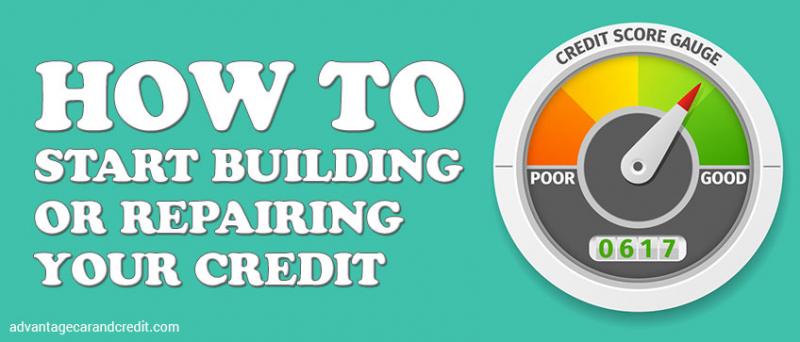
If you are one of the millions of Americans with a less-than-stellar credit history, don’t despair. There are ways that you can fix and build your credit that won’t take years of effort. No matter what caused you to have your current rating, you can repair and improve it. Discipline is the greatest tool in rebuilding your credit. If a lack of spending discipline is what got you into the mess in the first place, you may have to learn new habits in order to avoid the same fate in the future.
First, you need to understand what a credit report includes and how it affects you. The three major credit agencies weigh the following factors in determining your credit score:
Credit utilization ratio (30%): This is how much you owe on a particular account versus how much you have in available credit. Maxing out cards lowers your score, so it’s recommended that you only use about 1/3 of your available credit at any given time.
Payment history (35%): Late payments and bills sent to collections hit your score hard.
Credit age (15%): How old are your lines of credit? The longer, the better so think twice before closing an account.
Hard inquiries (10%): Opening too many cards or credit lines within a short interval sends an alarm to credit agencies. They suspect that you may be trying to live off credit, and debt could accumulate quickly. Hard inquiries lessen in impact over time, so space out those new accounts.
Account blend (10%): Do you have a variety of credit lines? Having a broad array boosts your score.
To build up your credit score, there are a few relatively simple things that can help your score skyrocket.
It sounds counterintuitive, but getting a small installment loan with your bank or credit union can improve your score. The loan is not for a purchase or paying bills, but rather for you to simply pay back on time (seriously, just pretend you don’t have any extra money). By paying on time, you will be proving your credit-worthiness, which brings up your score.
Late payments are what linger on your credit the most. They can linger on reports for seven years, while bankruptcies last for 10. Pay all of your future bills on time, and bring any past-due bills current. This will show credit agencies that you are responsive to your obligations.
A secured credit card is a card that is essentially tethered to your bank account. You are allotted a certain percentage of what’s in your account as a credit limit. Eventually, you will qualify for an unsecured card with a much higher limit. Make sure that the card gets reported to the credit agencies so that they can track your progress.
Go through your credit report carefully. There may have been a mistake and you could find bills, cards and sometimes properties that do not belong to you. Dispute these, and you can clear away someone else’s credit problems from your report.
As mentioned above, the effects of late payments take years to dilute in your credit rating. Whatever changes you make in your financial habits will not improve your score overnight. Give yourself at least a year to start seeing changes on your credit report. Be patient and persistent. Don’t give in to impulse or old habits. If you stick to the plan, your credit score will rise in time.
To learn more about how buying a used car can help improve your credit, contact Advantage Car & Credit today.